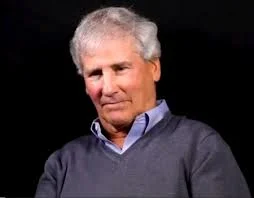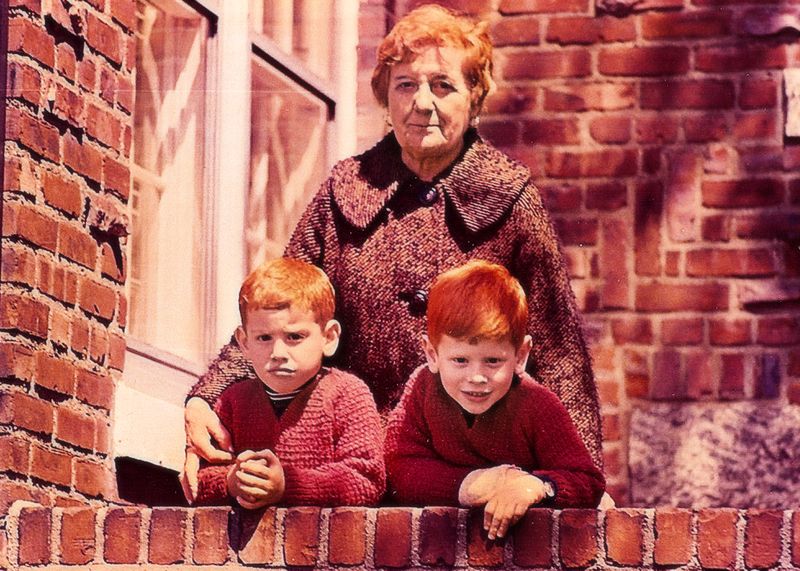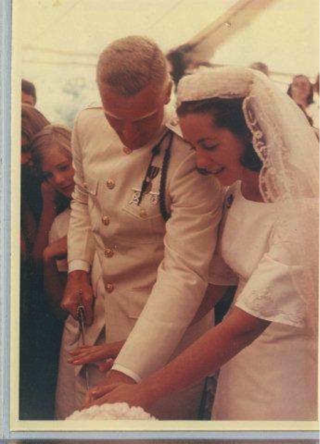This is the inaugural post of my Series on Mentorship which appropriately, given my subject, is written on Mother's Day.
Although I advise a healthy number of founders on a regular basis as a friend and/or in my roles at Columbia University, I also have the privilege of playing the role of very involved mentor to a few select entrepreneurs at any given time. It is a role that I take very seriously as I believe it to be an indispensable need for fledgling entrepreneurs. Properly carried out, it can be incredibly rewarding for both mentor and mentee.
Mentorship of course comes in many forms and I will eventually get into its many manifestations through the course of this Series. But let me say that when I think about the rare and special people who have truly given me this gift of mentorship I am always deeply humbled.
My wisest mentor of all was my paternal grandmother, pictured above with my brother and me on the porch of her Brooklyn home. She was a remarkable woman of immense wisdom and experience and a legendary figure to those who knew her throughout her long life. (She lived to the venerable age of 104!) Entrepreneur, community organizer, immigrant, sage advisor, trusted friend, mother, wife, daughter, sister, landlord, great-grandmother, benefactor to many despite her modest means- she was an unforgettable figure that touched many lives.
One of eleven sisters, she had come to this country by ship in 1921 from a small village in Russia with no education and no knowledge of English. After some years she and my grandfather started their own luncheonette with the little money they had assiduously saved and over time became beloved staples of their community. They worked incredibly hard and always treated everyone around them with respect and kindness. Their customers loved them and as a result of their immense efforts and indefatigable character their business thrived. In time they were blessed with two sons that they raised with these same values.
During these years my grandmother somehow found time to organize the old-world equivalent of a social network comprised of all the people from her home village that had come to the New York area and I remember how she would host frequent gatherings of these countrymen in her home, cooking for 20+ guests at a time with great enthusiasm. The organization was literally a moveable feast of great characters. Anyone new to America from her village was treated like family by her and she made it her special mission to look after them until they were settled here with a job or with some means of supporting themselves. Her sense of fairness transcended her humble station in life and when the City failed to make good on a promise having to do with the zoning of a commercial property she and my grandfather had purchased, she went to see the Mayor herself unannounced and after four hours of waiting he finally agreed to see her. He could not resist her great charm and profound sense of right and wrong and took care of the matter within a week's time. She was a staunch patriot- deeply grateful for the opportunities the freedom here afforded her family. When the time came, her oldest son went overseas to fight in World War II, island-hopping in the pacific theater. Like so many families during the war years, hers too listened intently to the radio reports nightly throughout those years all the while wondering if their son would come home and if America would prevail. He was to be decorated for his service and returned with his fellow soldiers- victorious.
I remarked throughout my childhood and through all the years that I knew her that she was always helping people. People from her village, people from the community, her family and her friends, relatives who had fallen on hard times. I remember too, that when my grandfather became incapacitated with Alzheimers she never even considered bringing him to some kind of assisted facility though many encouraged her to do so. She spent a decade or more feeding him, moving him from bed to chair to bed, talking to him and caring for him herself though she was well into her seventies by then. People who visited them were in awe of her strength and devotion.
I remember too how much she advised me when I started out in business, how many stories she would tell me, each of which carried such meaningful lessons. She understood human beings deeply and never forgot a face, a person's life-story- it all was so important to her- she cared immensely. She taught me the meaning of customer service, of reputation, diligence, integrity, attention to detail, humility, hard work, authenticity. And she taught me to work only with people who embodied these qualities and not to waste my time with those that did not.
All this is what I learned from her by watching, by listening. She was my wisest and dearest mentor.










